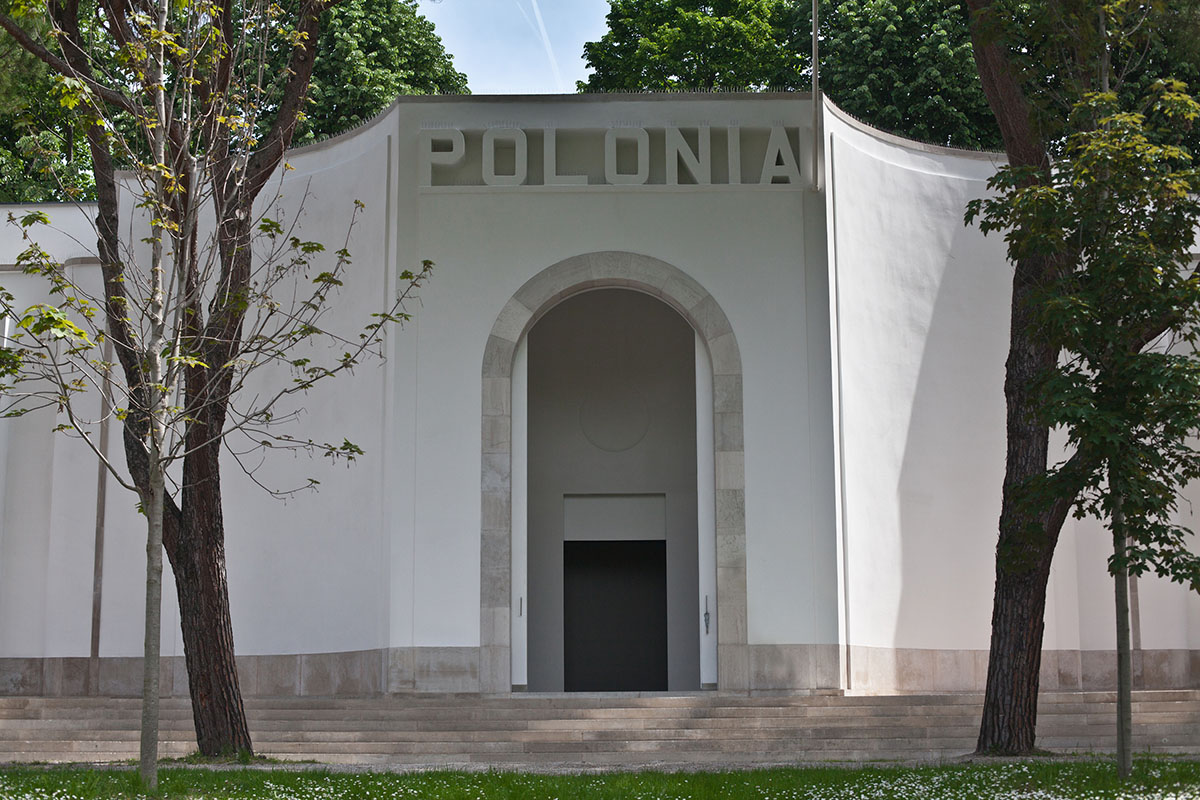Submitted by WA Contents
The Polish Pavilion to unfold the world's relationship with data in Venice Architecture Biennale
Poland Architecture News - Apr 04, 2023 - 15:00 3480 views

The Polish Pavilion has released its theme and details for the exhibition that will be showcased in the 2023 Venice Architecture Biennale.
Curated by Jacek Sosnowski, the exhibition, titled Datament, aims to spark a discussion about how the world and people process and consume data and shape the place we live in.
Datament, a title derived from the neologism, will be a monumental installation presented at the Polish Pavilion for the 18th International Architecture Exhibition of Venice Architecture Biennale.
The Polish Pavilion will allow visitors to experience data in its ‘physical’ form. Datament will unfold the record of a dialogue between artist Anna Barlik and architect Marcin Strzała as the main exhibitors.

Authors of the Datament exhibition in the Polish Pavilion at the Biennale Architettura 2023. From left: Jacek Sosnowski, Anna Barlik, Marcin Strzała. Photography © Monika Ciepłucha, 2023
Anna Barlik works in visual art, local contexts, colour and composition. Marcin Strzała is an architect who explores the relationship between digital data and their physical manifestation in design.
The Venice Architecture Biennale 2023 will take place from Saturday 20 May to Sunday 26 November, 2023 at the Arsenale and Giardini venues in Italy. The theme of the 18th Venice Architecture Biennale is The Laboratory of the Future curated by Lesley Lokko.
"The sheer amount of data generated every day is staggering. The development of civilisation and technology has made us dependent on the production, collection and processing of information," said the curator Jacek Sosnowski.
"The conclusions from digitally-processed content are used in architecture, urbanism and spatial planning, among other things. Believing algorithms to be infallible, we let them calculate and design our houses and cities."
The pavilion will be filled with the frames of four life-size houses. These seemingly chaotic and absurd structures, faithfully reproducing the "source data", represent the original data.
The exhibition is intended as a starting point for a discussion about how, while new technologies may not offer us ready-made solutions, they can help us ask better questions.
As human-beings, we generate an estimated 1.145 trillion megabytes of data daily, according to the team. "By the year 2025, the amount of content that we produce is expected to reach 181 zettabytes (four times more than in 2020)," the team added.
Based on these numbers, these numbers do not make it possible for us to assimilate and organize such a large amount of data. "Just sending all this data through a standard Internet connection would take about two billion years," the team explained.
According to the team, this is why most information is collected, systematized and processed without human intervention.
In architecture, urbanism and spatial planning, statistical data analysis and the use of algorithms in design are having a significant impact on how we live now and will in the future.
However, people are less and less concerned with raw data. Information processed with new technologies creates a distorted picture of reality. Based on this digital illusion, people make decisions with very real consequences.
At the Polish Pavilion, the visitors will have the opportunity to experience data in its "physical" form. The impressive installation will reproduce the spatial forms of houses from four countries on a 1:1 scale.
Made up of almost two thousand metres of coloured steel profiles, the structures are based on averaged, generalised data on the shape, size and functional layout of houses in different geographical zones. The team has selected the countries based on how much statistical data they produce and collect.
The installation faithfully reflects this information, but it has no bearing on the actual housing situation in the places from which the information is derived. A tool that was supposed to bring order to reality becomes a source of error.
Together with curator Jacek Sosnowski and the exhibitors, the team have developed a structure based on digital data analysis. Datament conveys the idea of the ubiquitous "data establishment" that is constantly shaping the reality in which we live, create and dwell.
"We share a world with data. Believing in their infallibility, we let algorithms calculate and design our houses and cities," said the creators of the installation.
"However, without a sensitive and conscious designer, digitally processed data can create distorted solutions, such as those presented in the Polish Pavilion," the team added.
Based on the theme of this year’s Venice Architecture Biennale, The Laboratory of the Future, the creators of the Datament project question the infallibility of data as a factor in making development decisions, including the architecture and urban planning of future cities.

Datament, graphic design by Martyna Wyrzykowska
The exhibition is meant to serve as a starting point for a discussion about the extent to which a view of the world seen solely through data is distorted, and how we might interact with it differently.
The presentation of the private spaces in the Polish Pavilion, which have been algorithmically calculated and are detached from reality, is a voice in the ongoing discussion on the state and future of housing, within the context of the Venice Architecture Biennale 2023 and beyond.
With this project, indeed, the creators "do not reject data outright as a source of knowledge." They aim to show that modern technology will not provide us with ready-made solutions, but that it can help us ask better questions.
The Polish Pavilion was commissioned by Janusz Janowski / Zachęta — National Gallery of Art.
Several pavilions announced their themes and details for the 2023 Venice Architecture Biennale, such as Gabriela De Matos and Paulo Tavares were announced as the curators of the Brazilian Pavilion, the Danish Pavilion will explore Coastal Imaginaries curated by Josephine Michau.
Moreover, the British Pavilion will explore Dancing Before The Moon, curated by Joseph Henry, Meneesha Kellay, Sumitra Upham, the Georgian Pavilion will explore January, February, March, focusing on the relationship between the flow of time and energy, the Swiss Pavilion will present Neighbours at this year's exhibition.
More recently, the Korean Pavilion announced its theme, 2086: Together How?, the Austrian Pavilion presented its theme PARTECIPAZIONE / BETEILIGUNG, the Spanish Pavilion presented its theme Foodscapes at the Venice Architecture Biennale.
Top image: Polish Pavilion in Venice. Photography © Barbara Kaja Kaniewska.
> via Polish Pavilion
